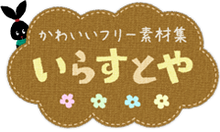TO EXPRESS ABILITY : : SAYING WHAT WE ARE/ARE NOT ABLE TO DO
やっと、かんじ を よむ こと が できます。
At last, I can read kanji!
USE THE DICTIONARY FORM OF THE VERB, FOLLOWED BY こと が できる/ こと は できない
- Remember, できる means 'be able to'
- こと is a word that refers to abstract things like ideas and concepts. When we add こと to a verb, it makes the verb behave like a noun so that we can add 'ga dekiru'. We already know how to say 'Piano ga dekiru' - 'Piano is possible / I can piano' (OK, it sounds weird in English, but it works in Japanese!). Now, we can say, 'Piano wo hiku koto ga dekiru', which means, 'Piano playing is possible'. Or in other words, 'I can play the piano'.
Nihongo ga dekiru (I can Japanese) vs. Nihongo wo hanasu koto ga dekiru (I can speak Japanese).
WITH たりたり - 'YOU CAN DO THINGS LIKE...'
WITH ながら + たりたり - 'WHILE DOING (SUCH AND SUCH), YOU CAN DO THINGS LIKE...'










